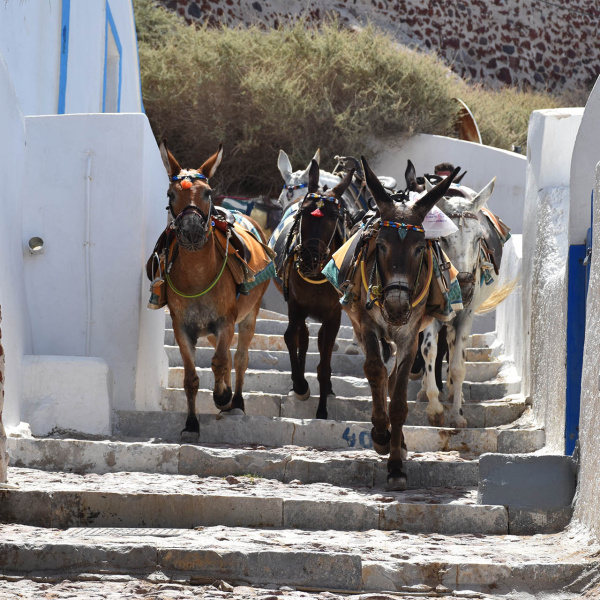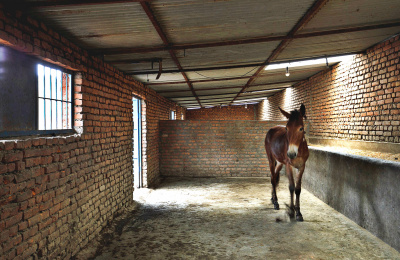We do not promote using donkeys or mules in any form of tourism. However, we recognise that donkeys and mules are part of the tourism industry in Greece, providing a livelihood for some families and communities.
We maintain that animal welfare is key and must be a priority.
We have previously expressed our concerns to the Santorini government about the working conditions and practices of donkeys and mules on the island. We also produced a video, In their Hooves, designed to increase tourists’ awareness of donkey welfare needs.
This was delivered in partnership with Cruise Lines International Association (CLIA) and was shown on cruise ships docking in Santorini.
'In their Hooves' is still available online and encourages tourists to question how they would feel working under the same conditions as a working donkey.
What to do if you see a donkey working in poor conditions in Santorini
We are not in a position to enforce animal welfare regulations in Santorini.
Instead, we encourage members of the public with concerns for the welfare of donkeys and mules to contact the local authorities (local veterinary department or the local police).
If you are unsure about whether the donkey is in distress, you may find it helpful to consider the following questions:
Water
Do the animals have fresh water available and accessible?
Shelter
Is there shelter to protect the animals from the sun or rain while they are resting?
Owner behaviour
Is the owner or handler physically mistreating the animals?
Wounds
Are the animals free of any open wounds, or signs of injury? Is the equipment such as the saddle, harness or head collar causing harm?
Weight
Are the animals being asked to carry an acceptable weight?

